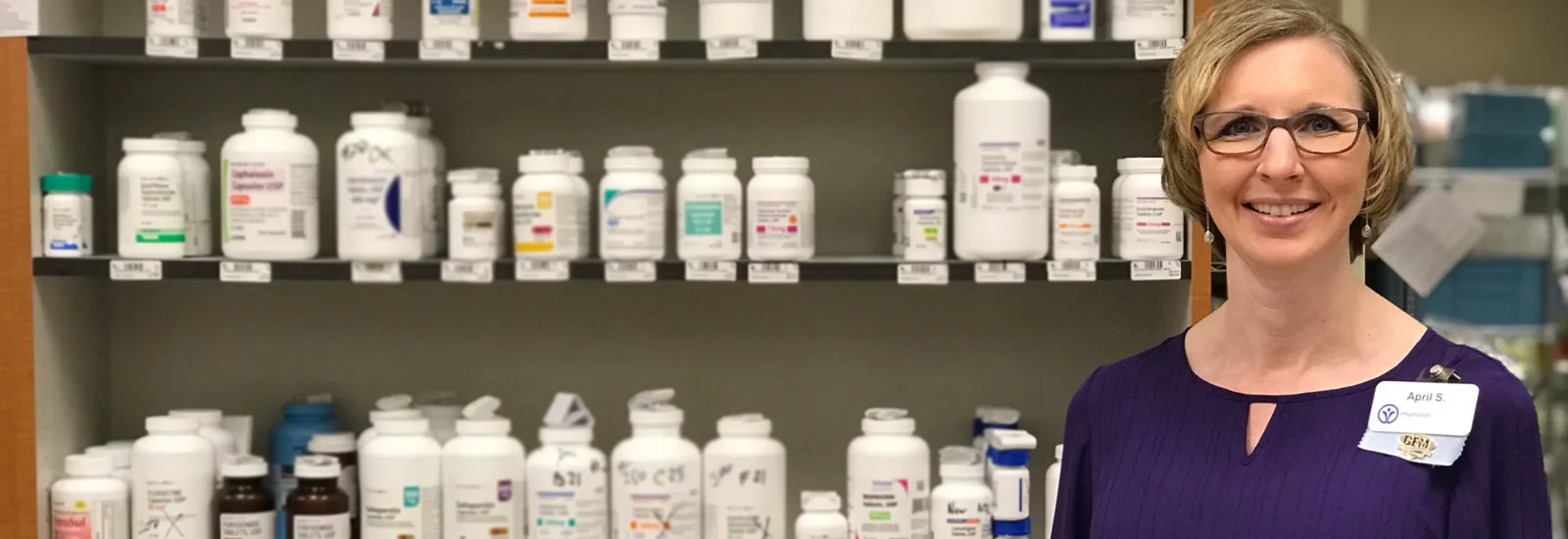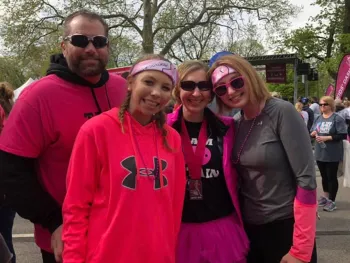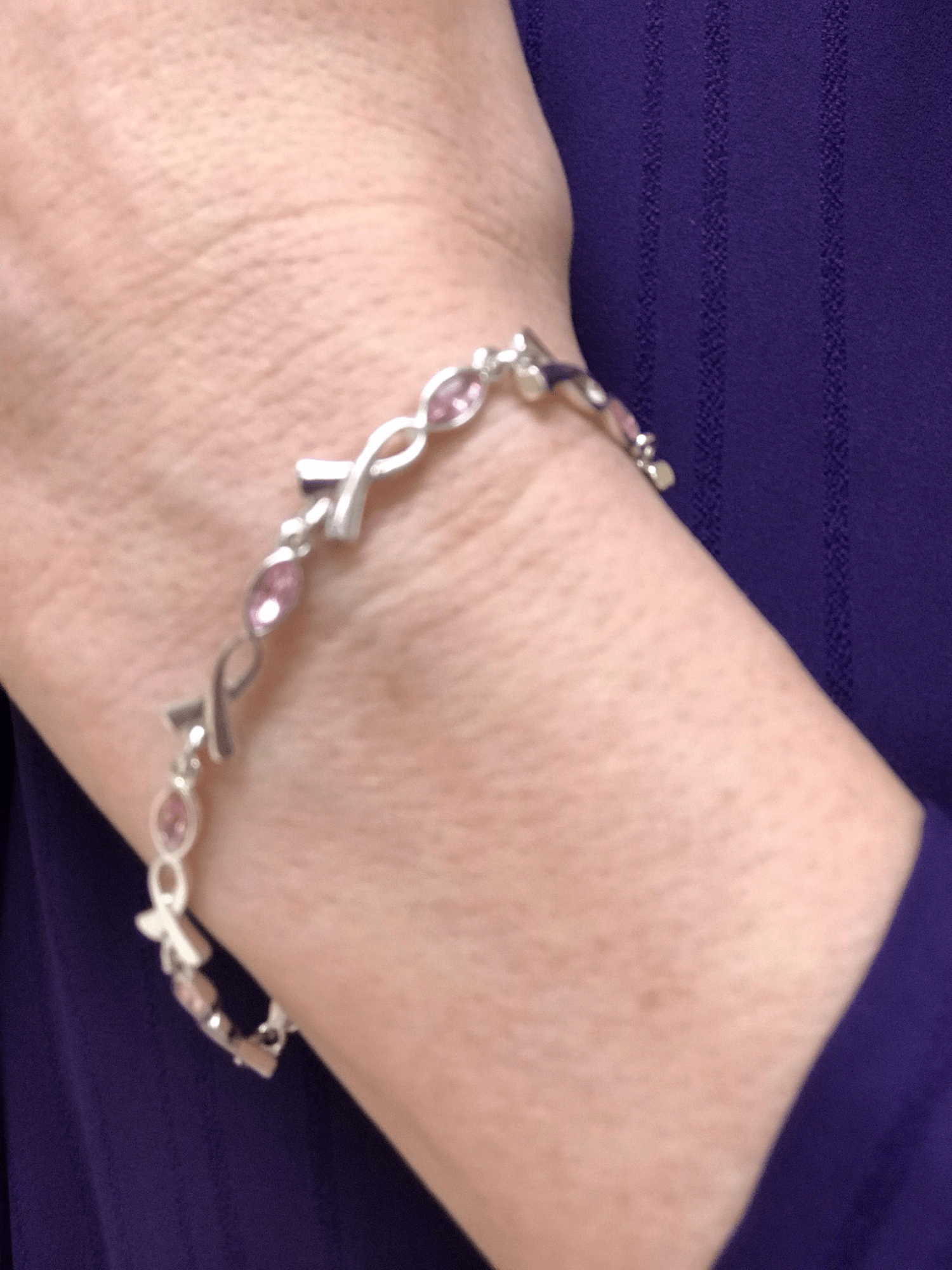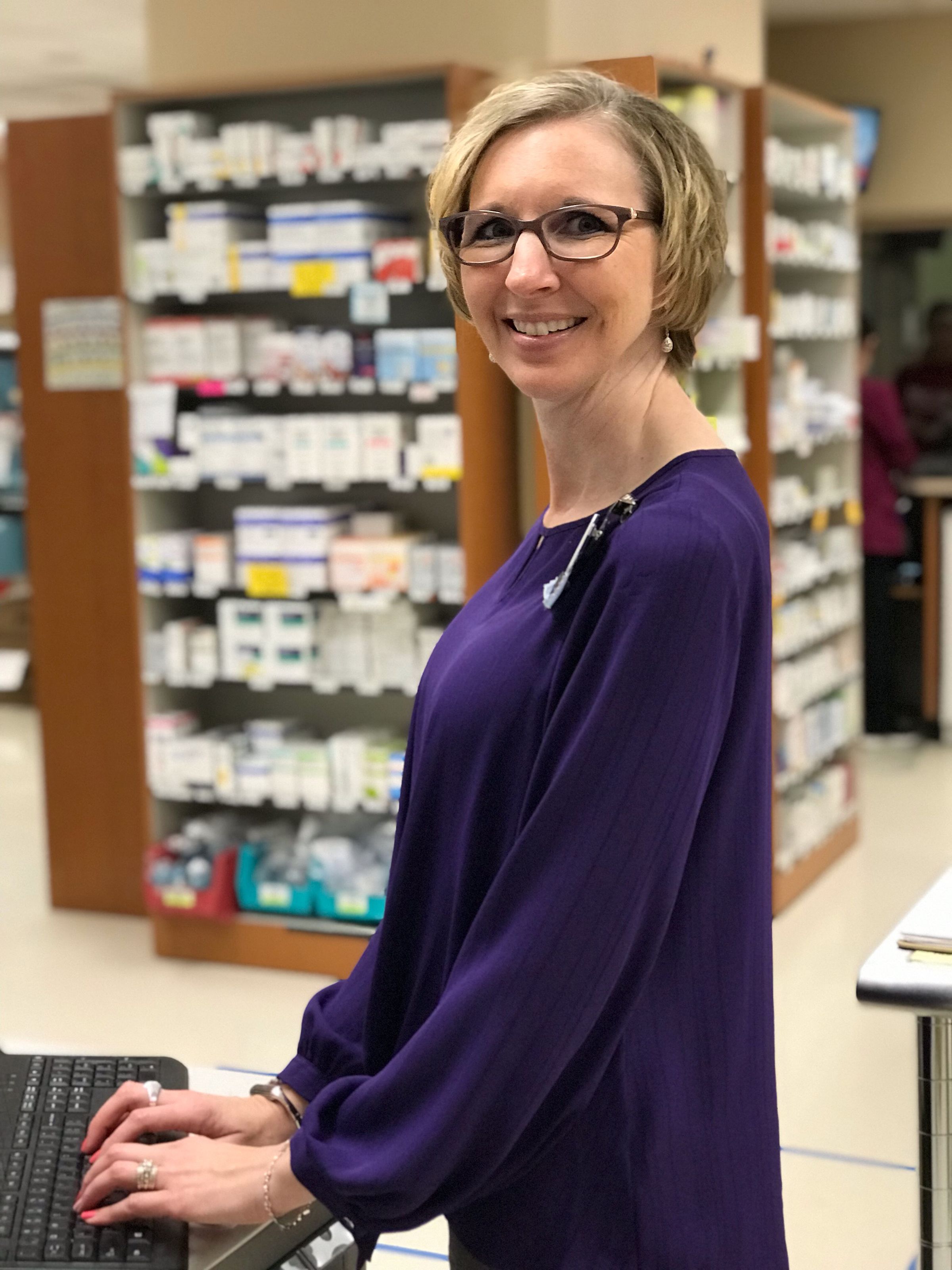
Healing journey: ‘I never dreamed I would get breast cancer’

April Scott with her family at an Indianapolis breast cancer awareness event.
April Scott will never
forget Christmas 2018 -- or her birthday four months later.
She learned the Friday before Christmas she had breast cancer. The news started a whirlwind of doctor's appointments, consultations and surgical procedures that culminated with breast reconstruction surgery on her 46th birthday in April.
"I never dreamed I would
get breast cancer," Scott says, looking back over a hectic time that is only
today beginning to settle down to what her life was before the diagnosis. So
many things come with the shock of being told you have cancer. It felt like a
dream. How would her daughters react? How could she keep them from being
overwhelmed? "Obviously finding out their mom had cancer would be very
upsetting."
The diagnosis filtered
through a fog of shock and racing thoughts. "You hear what they are saying,"
she recalls. "It just sounds muffled." She had to absorb the news with her
husband, Adam. To this day, she doesn't totally understand the strength she
found in the process.
'Faith over fear'
"I think for me it was
faith over fear," she recalls. Her faith had built her strength, though it took
time. "If this had happened in my early 30s, I would have responded a whole
different way." She had to think of her daughters - who were 13 and 16 at the
time. "I feel like the peace I had and my attitude tremendously helped with
their coping - not only them, but my husband too."
She had already viewed
her position as a pharmacist as a form of ministry, dealing with people who
include those getting medicines for serious diseases, including cancer. "The
worry and anxiety doesn't help the situation. I honestly think that for
whatever reason this happened to me, God equipped me to have peace about it and
I was able to use this in a positive way. I feel like people sometimes think if
you get a cancer diagnosis, you are supposed to mope around and act like your
life is over. But that's not me."
Because she has dense
breast tissue, she believes her choice of 3D
technology for her annual mammogram was critical to her successful healing
journey. The mammogram found a lump that was too small for her or her physician
to feel, and likely would not have been visible in traditional mammography. Had
the lump not been found, her options would have been much more challenging
should another year have gone by.
3D
technology is ideal for women with dense breast tissue for just that reason.
"The earlier we can detect a cancer, the better chance a woman has for
survival," says Beth Ingram, M.D., radiologist. Early detection can also
simplify the treatment process. She says "breast tomosynthesis," or 3D
mammography, has been offered by Reid Health Breast Center for five years.
Her doctor, Tina Reichley,
M.D., recommended Scott use this technology a few years ago. Dr. Reichley
says she encourages her patients to have an annual screening starting at age 40
- especially in women who have been on artificial hormones or who have dense
breast tissue as did Scott. "I strongly recommend the tomosynthesis mammogram;
it is the best when we are talking about dense breast tissue."
Confirmed diagnosis
Scott, who is a Pharmacist at Reid Health,
had the 3D mammogram on Dec. 12, and the suspicious lump was spotted by
technology. She counseled with an oncology
navigator and was referred to surgeon Thomas Grayson,
M.D., seeing him just two days later. A biopsy was quickly performed and two
days later Dr. Grayson saw her again to break the news. It was definitely
cancer and a form that was aggressive.
After hearing the
options for treatment, she knew almost immediately she wanted a double
mastectomy. This option reduced the possibility of a need for other treatments
like chemotherapy or radiation or a recurrence in the second breast.

Dr. Grayson says a
patient's options are of course directly related to what can be learned in the
initial evaluation, noting their effectiveness is generally the same. That at
least gives a woman facing a breast cancer diagnosis some control over next steps.
"With breast cancer,
there are four main tools we use," Dr. Grayson explains. "Different patients
may need different combinations of those. Some may need one, some may need all
four." The options include surgery, radiation treatment, chemotherapy and
hormone manipulation. The treatment options can be confusing for patients, he
says.
Each operation has
advantages and disadvantages, Dr. Grayson notes. A lumpectomy has cosmetic
advantages because it preserves some of the breast tissue. "And the operation
is a little bit smaller than a mastectomy." A disadvantage is it almost always
would be followed by radiation treatment - and there is always a risk of
needing to go back in to remove more tissue.
For most patients, the
first option is surgery - either lumpectomy or mastectomy. The exception would
be if the initial diagnosis found extensive or advanced disease, which would
likely require initial chemotherapy before any other options were considered.
For Scott, all options were on the table. She did not hesitate - she chose a
double mastectomy and breast reconstruction.
Surgeons collaborate
"I just knew I didn't
want radiation." So her treatment process involved Travis (Shawn)
Greathouse, M.D., plastic and reconstructive surgeon, along with Dr.
Grayson. She saw each of them several times ahead of her procedures. She had
her first major surgery Jan. 16 to remove her breasts and three lymph nodes,
with both physicians involved.
Dr. Greathouse says
general surgeons and plastic surgeons commonly collaborate like this. "I can
begin the reconstruction before the patient wakes up. This means the patient
can wake up and still feel partially whole. It has been shown that 'immediate
reconstruction' versus 'delayed reconstruction' has a positive effect on final
aesthetic outcomes, improved psychosocial well-being for the post-mastectomy
patient, and lower overall costs."
The process was
completed on her 46th birthday in April with the completion of
breast reconstruction. As she continues her healing, Scott's message, particularly
for women with dense breast tissue, is simple: Never skip the annual screening
mammogram; and choose 3-D if it's an option.

"Don't take the wait and
see approach. Don't decide to skip a mammogram. Timing was key to my path
including not having to have chemotherapy." She finds herself frustrated by
friends and acquaintances who avoid their annual screening out of fear of
something being found. With breast cancer, as with any cancer, early diagnosis
can be the difference in the severity of the treatment process - and life or
death.
"My outcome was good,"
Scott says. "Had I skipped my annual screening, that may not have been the
case. I encourage women to resist any temptation to delay or skip their
mammogram. Don't just think about yourself - think about the people who love
you. And do it for them."
Dr. Grayson also emphasizes what he says is a misconception concerning the question of family history and breast cancer that may cause a false sense of security. While having close relatives who have had breast cancer is a risk factor, not having a family history doesn't necessarily reduce risk. Scott's family had no history.
His point: Women who don't
have a family history should never use that as a reason to delay a mammogram.
"Family history has nothing to do with more than 90 percent of breast cancers,"
he says. "The main risk factor is being a woman. The other most common risk
factor is age."
Today, April's personal mission is to educate other women about the importance of early detection through mammography. She is passionate about using her experience to encourage others. "I continue to spread the word as much as I can about the importance of mammograms and I love supporting other women through their breast cancer journeys," she says.
Choosing 3D Mammography
This
procedure is covered by Medicare but may not be covered by commercial
insurance. The option is discussed with each patient. The test has some
physical limitations, including requiring the patient is able to stand
independently for a specific length of time. Please discuss your options with
the technologist. To schedule a screening mammogram,
call (765) 983-3358.
"Don't take the wait and see approach. Don't decide to skip a mammogram. Timing was key to my path including not having to have chemotherapy." -- April Scott
Trouble getting video to play? Try this link:
To learn more about 3D Mammography or to request an appointment for a mammogram, visit Reid Health Breast Center.

